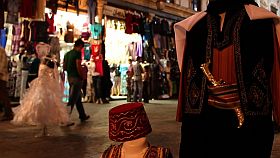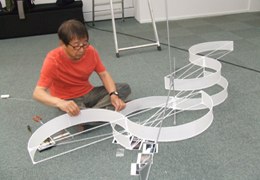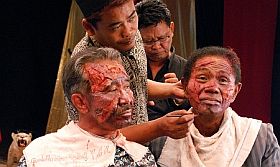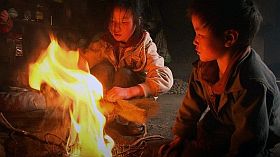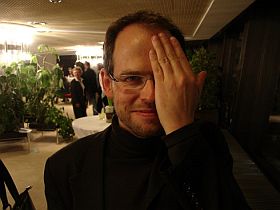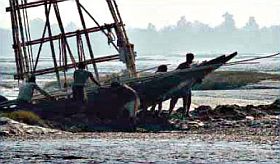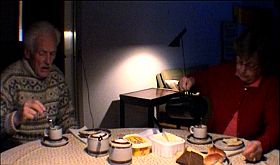


DOK Leipzig – Films/ 4
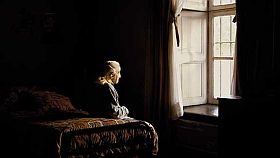
Had an interesting conversation with Polish filmmakers last night at a dinner reception held by the good and always active people from Krakow Film Foundation and Festival. Two of their compatriots, members of juries, had to leave early for an evening screening with an audience. Is that right, we discussed, should juries watch the competing films with the audience or on their own, and should juries watch films in the evening after a long day – or should they do their work in the mornings. Of course there are a lot of practicalities involved, when festival people organise a time schedule for juries, but having been in loads of juries I can only say how pleasant it has been to watch films in the mornings and early afternoons with other jury members and to have the first discussions right after the screenings. With films on a big screen, of course.
So what does the DOK Leipzig international jury decides to communicate tomorrow night at the closing ceremony.
Let me try to come up with some ideas for films that could be candidates for the awards in the ”DOK Internationaler Wettbewerb”, the feature length international competition. I have seen most of the films – in the mornings at the market – some of them only in parts, to be fair.
”11 Images of a Human” by the couple Markku Lehmuskallio and Anastasia Lapsui was disappointing compared to what they have been doing before. Heavy and over-structured it is and not at all the ”poetic reflection on cave paintings and petroglyphs” that the catalogue text says. ”Another Night on Earth”, by Spanish David Munoz, is one of many current films that let people be driven and filmed in a taxi, this time in Cairo. Conversations, sometimes entertaining but most of the time boring. I already, below, wrote about the Bangla Desh film ”Are You Listening?”, it will get a prize for sure but maybe not the Golden Dove, whereas the Chinese ”Cloudy Mountain” by Zhu Yu might candidate because of its visual strength depicting people working in asbestos mines. Swedish ”Colombianos” by Tora Mårtens is weak, ”Documentarian” (see below) will not go for main prizes, and I doubt that Peter Mettler’s essayistic ”The End of Time” can unite a jury. Polish pedophile subject film, ”Entangled”, by Lidia Duda, demonstrates how difficult it is to make a film, where you are not allowed to show faces, and Damien Ounouri’s fine ”Fidaï” about the Algerian FLN fighter going back in time and place is probably not strong enough. German ”Der Kapitän und sein Pirat”, on the contrary, is a great piece of investigative and character driven documentary, raising so many moral and ethical questions about the ship piracy, this time off the Somalian coast. Swiss Olivier Zuchuat has visited Makronisos with ”Like Stone Lions at the Gateway Into Night”, several Greek filmmakers have done the same, much better than this documentary that suffers from too much perfume.
The Chilean ”Last Station” (photo) will get a prize, one of the Doves, is my guess for its beauty in approach and cinematography, rightly characterised in the catalogue as ”picturesque dark tableaux vivants, the rythm of slowness turns into poetry”, and another one will be given to ”Sofia’s Last Ambulance” by Bulgarian Ilian Metev.
… but I might be totally wrong! (And I have not talked to any jury members!)
